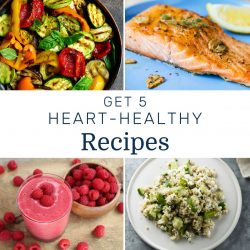American Heart Month
Love Your Heart
February is National Heart Month!
By adopting a healthier lifestyle, you can lower your risk of developing heart disease, stroke, or heart attack. Here are some ways to start showing your heart some love today!
Why is heart health important?
The heart is one of the hardest working muscles. It supplies blood, oxygen, and nutrients to every cell, nerve, muscle, and organ in your body. Let’s get to know our heart a little better and how it works!

Home is where the heart is
Think of your heart as your “home.” And each part of your “home,” or heart, has a job. Such as:
- Walls – The outer muscle or “myocardium” is your heart’s wall–a muscle tissue in your heart that squeezes and relaxes your heart so blood can pump throughout your body.
- Room – Your heart’s rooms are its “heart chambers,” which help control our heartbeat and keep blood moving smoothly through our veins and arteries.
- Doors – “Heart valves” act as doors within the heart’s chambers. These valves open and close as your heart pumps. This prevents blood from flowing in the wrong direction from your heart to the chambers.
- Electricity– Your heart’s “conduction system” sends electrical signals to signal your heart to pump. Think of this as the part of your home that keeps everything “on” and running.
- Plumbing – The network of pipes called “blood vessels” are your heart’s plumbing, carrying oxygen and blood from your heart to the rest of your body. These vessels also provide your body with healthy nutrients and remove harmful waste from your body.
There are three main types of blood vessels
- The artery carries blood away from your heart.
- Veins carry blood back towards your heart.
- Capillaries connect your arteries and veins.
Considering your heart is responsible for just about everything that gives your body life (oxygen, blood, immune system), it’s no wonder we need to make sure this power muscle is well taken care of so we can feel our best.
Knowing risk factors for heart disease and what steps to take to keep your heart healthy can positively impact your health.

Know your risk factors and protect your heart
Certain factors can put you at risk for heart disease. Some risk factors such as age, family history, race, and ethnicity CANNOT change. But the good news is that you CAN change several health conditions and lifestyle factors to improve your heart health.

Click on the hearts below to learn more information
High blood pressure is the number one cause of heart disease and stroke. Keeping your blood pressure at a healthy range is important. Always check with your provider about your blood pressure range and how often you should be checking your blood pressure. For most people with kidney disease, a healthy blood pressure range is between 120/80 mmHg to 140/90 mmHg.
High cholesterol can increase your risk of heart disease. If you have diabetes or a family history of high cholesterol, it is important to get your cholesterol checked at least once a year. Below are general goals for cholesterol levels. Remember that your goals may differ based on your current health status.
- LDL (“bad”) cholesterol, under 100 mg/dl
- Triglycerides, under 150 mg/dl
- HDL (“good”) cholesterol for men, above 40 mg/dl
- HDL (“good”) cholesterol for women, above 50 mg/dl
If you have diabetes, you are at a higher risk for developing heart disease than those without diabetes. It is important to keep your blood sugar under control and at a healthy range. Always check with your provider about your blood sugar range and how often you should be checking your blood sugar. For most people with kidney disease, healthy blood sugar ranges are:
- Normal fasting blood sugar is 80-130 mg/dL
- Normal blood sugar 2 hours after a meal is less than 180 mg/dL
- A1C goals is less than 7%
Using tobacco puts you at twice the risk for heart disease and stroke when compared to people who do not use tobacco. It is important to quit using tobacco to protect your heart. Quitting isn’t easy, but talking to your provider and having a support system can help. If you need more help to quit, call 1-800-QUIT-NOW (1-800-784-8669) or Text QUITNOW to 333888.
Drinking too much alcohol can lead to heart and blood vessel problems. No amount of alcohol is considered safe or risk-free. Drinking can be dangerous if you have a medical condition or take medicines that might be affected by alcohol. Ask your provider if it is safe for you to drink. If you choose to drink alcohol and are of legal drinking age, women should have no more than 1 drink a day and men no more than 2 drinks a day.
Not getting enough physical activity can increase your risk of heart disease. Physical activity can improve how well your heart can pump blood throughout your body. It can also help to lower blood pressure and blood sugar. Aim for 30 minutes of physical activity a day. You can even find ways to add more movement throughout your day like:
- Taking the stairs instead of the elevator
- Parking further away in the parking lot when visiting a store
- Walking up and down your hallway between commercial breaks when watching TV
- Walking instead of driving whenever possible
Always talk with your provider before starting any new physical activity.
Eating a diet high in saturated fats, trans fats, cholesterol, added sugars, and high in sodium (salt) can increase your risk of heart disease. Instead, a diet rich in fruits, vegetables, whole grains, lean proteins, and healthy fats can keep your heart healthy.
Heart-healthy eating tips and recipes
Learn tips on daily changes you can make to be good to your heart and see a snapshot of some delicious recipes for healthy living!

Learn more about the healthy living program.
Somatus is here to answer your questions anytime. Call us (855) 851-8354
